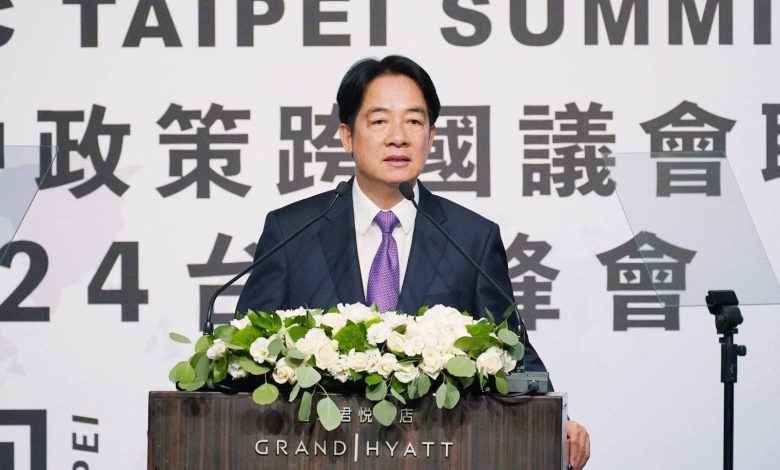MOFA thanks IPAC for passing model resolution on UNGA Resolution 2758 and showing concrete support for Taiwan

July 30, 2024
No. 253
The Inter-Parliamentary Alliance on China (IPAC) held its annual summit in Taipei on July 30. A total of 49 members from 23 countries and the European Parliament attended, setting a record high for the event. Through concrete action, the IPAC summit demonstrated support for Taiwan and opposition to China’s acts of intimidation. It adopted an IPAC model resolution on United Nations General Assembly (UNGA) Resolution 2758 that could serve as reference for IPAC members and facilitate the introduction of related resolutions in their respective parliaments. At an international press conference held after the summit, IPAC officially welcomed key political figures from Taiwan, Colombia, Iraq, Malawi, Solomon Islands, The Gambia, and Uruguay as new members. The Ministry of Foreign Affairs (MOFA) sincerely appreciates IPAC’s staunch support for Taiwan.
At IPAC’s invitation, President Lai Ching-te delivered a speech entitled “Taiwan’s Global Vision” at the summit’s Taiwan session on July 30. He emphasized that by upholding the spirit of democracy, peace, and prosperity, Taiwan was embraced by the world and was working with democratic partners worldwide to pursue prosperity. He called on international allies to jointly leverage their defensive strengths under the democratic umbrella so that democratic partners could avert the threats of expanding authoritarianism. Vice President Hsiao Bi-khim, who was invited to attend the international press conference after the summit’s Taiwan session, stated that Taiwan would continue to cooperate with like-minded countries to firmly uphold the shared values of democracy and freedom and safeguard the rules-based international order. On MOFA’s behalf, Vice Minister Remus Li-kuo Chen, who also attended the Taiwan session, thanked IPAC for supporting Taiwan.
During the summit, IPAC members discussed the relentless suppression of Taiwan’s international space by China’s misrepresentation of UNGA Resolution 2758 in the context of the evolving geopolitical environment. They also focused on China’s employment of gray-zone strategies, including hybrid political, economic, and military measures, as well as lawfare, to intimidate Taiwan. They reiterated that the maintenance of peace and stability across the Taiwan Strait was indispensable to international security and prosperity and that Taiwan’s robust technological strengths were paramount to the resilience of global democratic supply chains.
The IPAC summit also passed a model resolution on UNGA Resolution 2758 for members to use after returning home in guiding their respective parliaments to take more concrete action to support democratic Taiwan. The model resolution pointed out that UNGA Resolution 2758 did not endorse the “one China principle” as international consensus, call for Taiwan’s exclusion from international organizations, or have any bearing on sovereign choices of other countries regarding their relations with Taiwan. It also urged that the lack of representation of Taiwan’s 23.5 million people in the UN be immediately remedied.
MOFA appreciates that IPAC advocated justice for Taiwan and encouraged the international community to jointly counter China’s misrepresentation of UNGA Resolution 2758 and attempts to link the resolution with its so-called “one China principle.” MOFA highly commends IPAC’s unprecedented decision to hold its annual summit in Taiwan, thereby underlining the importance of cross-strait issues to the international community. It welcomes visits by more democratic partners to witness Taiwan’s contributions to world peace and prosperity.
Based on the Four Pillars of Peace action plan launched by President Lai, Taiwan will further enhance its economic resilience, as well as defense and deterrence capabilities. It will continue to engage and collaborate with IPAC and other like-minded partners to jointly uphold security across the Taiwan Strait; preserve peace and stability in the Indo-Pacific; reinforce economic and trade security and semiconductor supply chains that are mutually beneficial; and safeguard the core values of democracy, freedom, human rights, and the rule of law that are shared by the global democratic community. (E)

